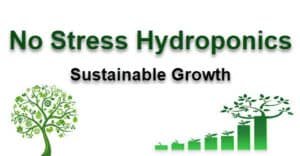
Hydroponic and conventional farming are the most popular methods for growing plants today. Both provide advantages and disadvantages depending on the situation, so it’s essential to understand their differences before choosing one over another.
This blog post will dive deep into hydroponic and conventional farming and compare their benefits and drawbacks in detail.
We’ll explain how each type of agriculture works and explore which option is better for different crops or situations. With this knowledge, you can make an informed decision that best suits your needs!
What Is Hydroponic Farming And Conventional Farming, And How Do They Work?
Hydroponic farming and conventional farming are two different methods of growing plants. Hydroponic farming is a soilless form of agriculture in which the plants are grown in nutrient-enriched water solutions.
In contrast, conventional farming involves growing crops in soil with traditional agricultural practices.
In hydroponic farming, plants are grown in nutrient-rich water solutions that contain essential minerals and nutrients for plant growth. This system does not require soil, so it is easier to control the pH levels and increase crop yields without having to till or fertilize the land.
Additionally, hydroponic systems can often produce higher yields than traditional crop fields. However, hydroponic systems can be more expensive to set up and maintain as well as being labor intensive.
Conventional farming involves using traditional agricultural practices such as tilling, fertilizing, and irrigating to grow crops in soil.
While this method is generally less expensive to set up, it requires more land than hydroponic farming and is vulnerable to pests and other environmental factors. Additionally, traditional farming can be more labor intensive than hydroponic farming.
How Does Hydroponic Farming Compare To Conventional Farming In Terms Of Benefits And Drawbacks?
Hydroponic farming offers many benefits compared to conventional farming, including higher crop yields, faster growth rates and more efficient water usage. Hydroponics also eliminates the need for soil or synthetic fertilizers, reducing overall costs and environmental impacts associated with traditional agricultural methods.
Additionally, hydroponic systems produce fewer pests and diseases than their conventional counterparts, allowing for greater control over crop health.
On the other hand, hydroponic farming also has some drawbacks. Hydroponic systems can be expensive to set up and maintain compared to traditional agricultural practices, due to the need for specialized equipment and ongoing energy costs.
Additionally, they require greater technical skill and knowledge to operate properly, which can be a barrier for some potential farmers.
Lastly, since hydroponic systems are typically contained indoors or in other controlled environments, they can also be more susceptible to temperature fluctuations and power outages that could damage crops.
Which Type Of Farming Is More Environmentally Friendly – Hydroponic Or Conventional Agriculture Methods?
The answer to this depends on a variety of factors, such as the type of resources available in your geographic area and the climate. Hydroponic farming is more efficient and sustainable because it requires less water, fewer chemical fertilizers and pesticides, and produces higher yields than conventional agriculture methods.
Because hydroponics are controlled indoor environments, they can be tailored to the specific climate, soil conditions, and crop requirements in each geographic area.
This means that hydroponic farming can be optimized to produce higher yields with fewer resources and less environmental damage than conventional agriculture methods.
The main downside of hydroponics is that it is more expensive to set up and maintain due to the need for specialized equipment and supplies.
Additionally, hydroponic systems are more susceptible to contamination from organisms that can cause crop damage and disease. ‘
Therefore, careful management of the system is necessary for successful hydroponic farming operations.
What Do You Think Would Be The Best Method For Growing Crops – Hydroponic Or Conventional Agriculture Methods?
The best method for growing crops is highly dependent on the environment and type of crop. Hydroponic systems are generally more efficient in terms of water usage and space; however, they require careful monitoring and maintenance to ensure optimal growth conditions.
On the other hand, conventional agriculture methods allow for greater flexibility, as well as being relatively low-maintenance.
Ultimately, choosing between hydroponics and conventional agriculture will depend on the type of crop being grown and the environment in which it is to be cultivated.
If space is an issue and water conservation is important, then hydroponic systems may be the best option; however, if greater flexibility or lower maintenance are more important, then traditional agriculture may be the better choice.
Ultimately, it is important to consider all of these factors and weigh up the pros and cons of each method before making a decision.
Conclusion:
In the end, the best type of farming for you will depend on your location, setup, and preferences. If you have a small space and want to be able to control all aspects of the growing process, hydroponics might be a good option for you.
However, if you have more land and prefer to let nature take its course, conventional farming may be a better fit. What matters most is that you produce food that is healthy and delicious – no matter what method you use.
